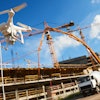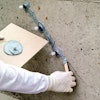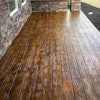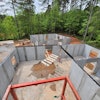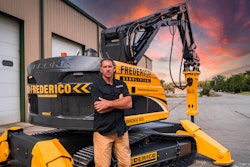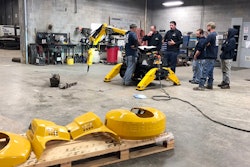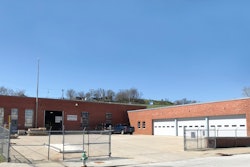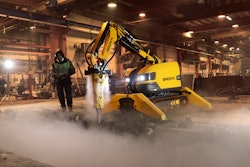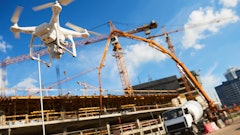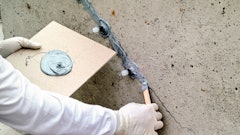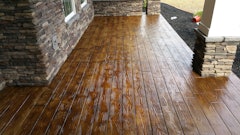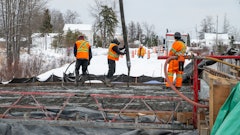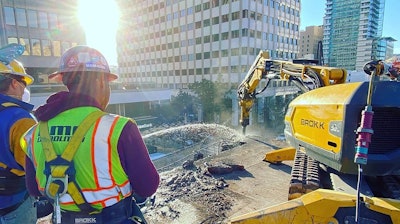
Like many cities with a long history, the skyline of San Diego has changed significantly over the centuries. Even in the modern era, demolition and construction continue to transform California’s second-largest city. However, with growing populations and congested urban environments, demolition contractors are forced to find safer ways to remove older buildings that minimize impacts on the day-to-day lives of citizens.
The city’s innovative contractors realize that today’s urban demolition requires a surgical precision traditional methods and equipment can’t provide. Instead, they are looking to remote-controlled demolition machines to make the impossible not only possible, but cost effective.
AMG Demolition & Environmental Services Inc. is one such contractor. The company has partnered with Brokk, a manufacturer of remote-controlled demolition machines, to complete a number of “impossible” projects in the San Diego area, including a challenging demolition in the heart of downtown. The job required the top-down demolition of a five-story building. Low floor loads limited AMG’s equipment choices, but an even bigger challenge lay beneath the surface — a three-level underground parking structure that had to remain open throughout demolition.
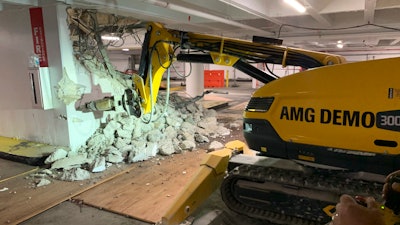 To complete everything within the eight-week timeframe, AMG needed to maximize crew utilization — taking down the building and excavating the elevator core simultaneously. The jobsite and equipment required the precision of a complex surgical operation to ensure safety and optimize productivity.AMG
To complete everything within the eight-week timeframe, AMG needed to maximize crew utilization — taking down the building and excavating the elevator core simultaneously. The jobsite and equipment required the precision of a complex surgical operation to ensure safety and optimize productivity.AMG
Powerful partnership
Established in 2002 by Annette and Mike Gafa, Sr., AMG is a family-owned demolition business specializing in structural, interior and selective demolition for residential, commercial and military entities, as well as general contracting, earthmoving, and mass excavations. AMG also performs asbestos and lead abatement services to meet growing demands associated with the removal of older buildings.
In San Diego’s referral-based demolition industry, AMG emerged as a hard-working contractor that could deliver innovative solutions for the most challenging jobs on schedule and within budget.
“Delivering what you promised, when you promised it, has always been one of my parents’ core values, even before they founded AMG,” says Mike Gafa, Jr., AMG senior estimator and owner. “They made that the foundation of our company, and we have staked our reputation on it ever since. Demolition is often just the first phase of a larger project, so it’s important to hit deadlines and budgets to keep the whole operation on track. Our clients know we can be trusted to get the job done.”
But while the company is willing to put in extra hours, Gafa and his team prefer to rely on thorough planning and creative problem solving to deliver on-time, cost-effective solutions. To that end, they have begun incorporating Brokk machines on a number of interior and top-down applications.
“San Diego is an old city with a lot of old buildings that need to be removed to keep progress moving forward,” Gafa says. “These buildings come with certain challenges. They have low floor loads. Access can be limited; sometimes there’s only a passenger elevator or single doorway to get to the site. And we’re having to remove hazardous materials like asbestos and lead paint.”
The company first turned to Brokk in 2016 to tackle a particularly robust top-down demolition.
“We needed to take down an old armory depot,” Gafa says. “The building was built in 1941 for the Pacific Theater and was designed to take a direct hit, so we needed some serious hitting power. But everything we looked at was too heavy for a top-down approach, until we teamed up with Brokk.”
AMG used a 6,945-lb. (3,150-km) Brokk 280 to make short work of the 136-ft.-tall (41.5-m-tall) Building No. 12 at the Manchester Pacific Gateway waterfront development. Work began on four 24-ft.-tall (7.3-meter) penthouses extending above the roof of the building and continued down with the Brokk methodically demolishing its way through 10-in.-thick (25.4-cm-thick) concrete.
“An important part of business is constantly re-evaluating the needs of the communities you serve and making cost-effective moves to meet those needs,” Gafa says. “The Manchester Pacific Gateway project helped us realize that remote-controlled demolition could revolutionize our process in terms of safety and productivity.”
It also provided another benefit AMG could capitalize on as it moved to capture more of the local interior and specialty demolition market; surgical precision.
“As the depot came down, we were able to see how the Brokk machines might provide a competitive edge on a more congested jobsite,” Gafa says. “We just needed the right project to prove our theory.”
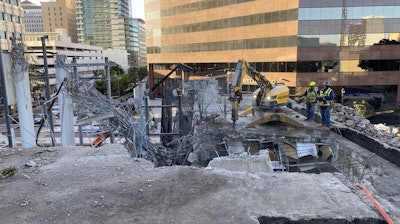 AMG began top-down demolition with two Brokk 300s. The 8,047-lb. (3,650-km) machines, equipped with BHB 455 breakers, provided ample hitting power — on par with a 33,000-lb. excavator.AMG
AMG began top-down demolition with two Brokk 300s. The 8,047-lb. (3,650-km) machines, equipped with BHB 455 breakers, provided ample hitting power — on par with a 33,000-lb. excavator.AMG
Downtown Challenge
While AMG was completing demolition of the Manchester Pacific Gateway, a new project was taking shape in downtown San Diego that would become the perfect proving ground for Brokk equipment.
General contractor CW Driver was awarded the contract to remove an existing five-story structure at 450 B St., replacing it with a six-story multi-use office and retail tower.
The jobsite included a 30,000 sq. ft. footprint that had a three-story underground parking garage, as well as a one-story portion up to 15 ft. high at street level. There was another 12,000-sq.-ft. footprint that was tiered up to 45 feet high. AMG’s job was to take down both portions, all while the underground parking garage remained open to the public.
The bustling block also housed a tower owned by the Bank of America only 60 ft. away. Bank facilities, offices and other amenities would remain open during demolition and subsequent construction, requiring crews to operate in off-peak hours and make other concessions to limit the disruption of daily life. Additionally, no vibrations could pass to the Bank of America building during demolition, which meant saw cutting along the grid line at sidewalk level to separate the two structures.
These challenges were minor, though, and could easily be overcome by a number of demolition contractors in the San Diego area. However, the unique construction of the structure being demolished and the active parking garage below it required a more innovative solution, for which CW Driver turned to AMG.
First, the demolition specialist assessed the challenges presented by the concrete and glass building. The structure, a former bank, featured five 22-ft.-wide-by-150-ft.-long (6.7-m-wide-by-45.7-m-long) “stair steps” climbing 15 to 42 ft. (4.6 to 12.8 m) above the sidewalk. AMG needed to provide ample power to break through the 24-by-36-in. (70-by-91.4-cm) concrete grade beams and 8-in. (20.3-cm) slabs without jeopardizing the structural integrity of the building as they worked or damaging the ground-level slab.
Below ground, there were even more challenges to contend with. AMG needed to find a way to ensure the safety and continued operation of a three-story parking structure, even while demolishing and excavating a 40-by-60-ft. (12.2-by-18.3-m) opening for a new elevator core and adding footings.
“The parking garage was really the primary challenge we needed to overcome,” Gafa says. “We had temporary shoring installed just under the sidewalk, eliminating the possibility of bringing in larger equipment from the street. We were able to block off some spaces and rearrange parking during demolition, but we couldn’t close the garage all together. We had to find a way to keep the public and our crews safe while excavating a giant shaft in the middle of the structure.”
To complete everything within the eight-week timeframe, AMG needed to maximize crew utilization; taking down the building and excavating the elevator core simultaneously. The jobsite and equipment required the precision of a complex surgical operation to ensure safety and optimize productivity.
“When we assessed all of the challenge, we found our equipment choices were very limited,” Gafa says. “We needed something with a small footprint but the hitting power of a much larger machine. We also needed superior precision. There would be a lot of people moving around below. For their safety, debris had to fall as intended. Finally, we needed a machine that could be operated by just one or two people, leaving more employees free for other tasks.”
AMG decided remote-controlled demolition was the only option that could address all the challenges presented by the project.
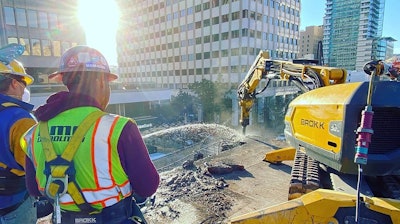 AMG saved at least $50,000 in labor in equipment costs by using robotic demolition rather than a more traditional approach with mini-excavators and hammers.AMG
AMG saved at least $50,000 in labor in equipment costs by using robotic demolition rather than a more traditional approach with mini-excavators and hammers.AMG
Surgical precision
After thoroughly planning every step of the process, installing extensive shoring and gutting the building, AMG began top-down demolition with two Brokk 300s. The 8,047-lb. (3,650-km) machines, equipped with BHB 455 breakers, provided ample hitting power — on par with a 33,000-lb. excavator — while remaining below the 10,000-lb. (4,536-km) maximum floor load. An experienced Brokk operator and a spotter were all it took to methodically maneuver the machines down through the building, allowing AMG to reallocate additional crew members to other tasks.
“Mini-excavators were our only other option with the weight restrictions,” Gafa says. “But they lacked the hitting power we needed. It would have taken three times the number of machines to match the productivity of one Brokk. And with that, three times the crew. Our plan relied on absolute precision at every step; more bodies, more machines and less productivity just wouldn’t work.”
As the Brokk operators worked their way through the thick concrete, a crew of 15-20 quickly sorted, crushed and removed debris below. Steel plating, cushioned by tires, was employed to protect the slab.
While the structure came down over their heads, an additional crew of 20 tackled excavation of the elevator core.
“On a given day, we had about 40-50 people on the jobsite,” Gafa says. “In order to keep everyone safe and the project on schedule, all of those 40-50 people had to be working in concert, like a team of surgeons. At the end of each shift, we would re-evaluate our progress and shuffle crews and equipment to maximize productivity the following day.”
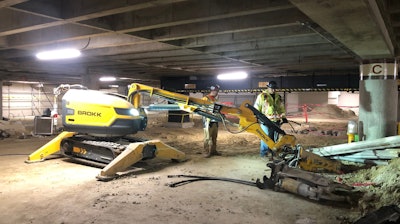 Mike Gafa Jr., AMG senior estimator and owner, estimates four Brokk units enabled him to reduce necessary crew size for the project by about 15 — giving AMG the capacity to take on more simultaneous projects without overextending itself.AMG
Mike Gafa Jr., AMG senior estimator and owner, estimates four Brokk units enabled him to reduce necessary crew size for the project by about 15 — giving AMG the capacity to take on more simultaneous projects without overextending itself.AMG
The Next Patient
Thanks to a coordinated effort and the use of Brokk machines, AMG completed demolition in just 56 days, frequently operating in off-peak hours to limit disruptions to the public. From the 30,000-sq.-ft. building alone, 7,600 tons of concrete were demolished, with all 7,600 tons being recycled. A further 1,000 tons of concrete were removed during excavation of the elevator core, along with 2,000 tons of dirt. In addition, AMG saved at least $50,000 in labor in equipment costs by using robotic demolition rather than a more traditional approach with mini-excavators and hammers.
And before the dust had even settled, AMG’s Brokk 300s were already hard at work on the next “impossible” job requiring demolition robots, a mall renovation with even stricter load restrictions. The company’s two Brokk 110s were already onsite. Even with crews spread thin by the 450 B project, these 2,183-lb. (990-km) machines, ideal for interior demolition on floors where even skid steers were deemed too heavy, allowed AMG to begin work on the 18-month project. Gafa estimates the four Brokk units enable him to reduce necessary crew size for the project by about 15, giving AMG the capacity to take on more simultaneous projects without overextending itself.
“The days of jackhammers and other manual demolition methods are numbered,” Gafa says. “It used to be that machines couldn’t access interior and sensitive areas, so you had no choice but to do it by hand. But Brokk has revolutionized that, making it safer and more productive than ever. These machines put AMG ahead of the curve, and we plan to stay there.”
Job Stats
Location: 450 B St., San Diego, Calif.
Dates: Feb. 2020 – April 2020
Duration: 56 days
Material demolished: 8,600 tons of concrete
Equipment: Two Brokk 300s
